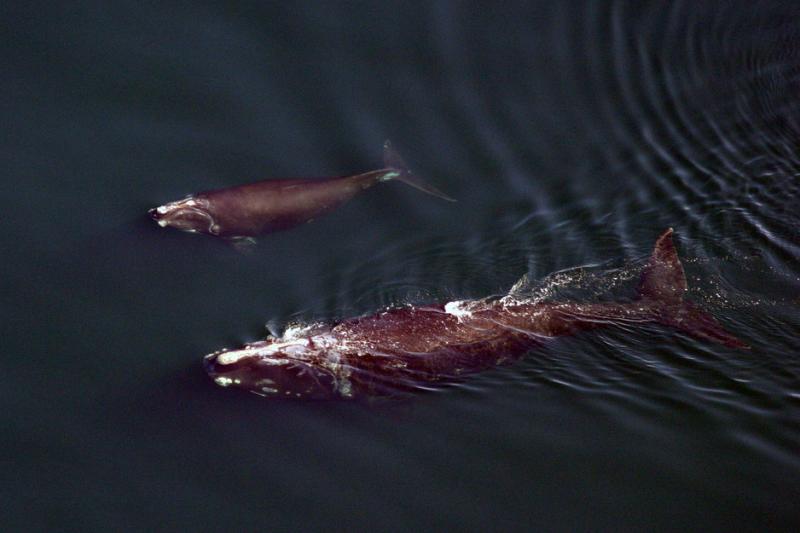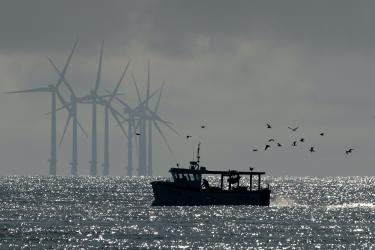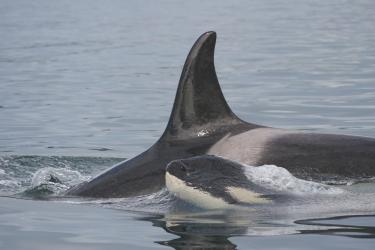Welcome to Endangered Species Week! This week is a great opportunity to learn more about endangered species, their habitats, and how we can help to protect them. Did you know that NOAA Fisheries has jurisdiction over 165 endangered and threatened marine species? We do, and Donna Wieting, Director, NOAA Fisheries’ Office of Protected Resources, highlights how every day we work to protect and conserve them. We know these species have aesthetic, ecological, educational, historical, recreational, and scientific value to the nation and its people. Those values are the foundation for the Endangered Species Act, and the responsibility to recover these species is central to our mission.
Species in the Spotlight
You’ve probably heard of some of our most vulnerable species in the news lately. North Atlantic right whales, Cook Inlet beluga whales, Pacific leatherback sea turtles, and Southern resident killer whales have all been in the headlines. These are four of our nine most critically endangered species identified in our Species in the Spotlight initiative. We’ve devoted extra time, attention, and resources to these species since 2015, and have made progress towards their recovery.
Ms. Wieting explains, “For some species, like white abalone, Sacramento River winter-run chinook salmon, and Central California Coast coho salmon, we use captive breeding and stocking programs to help increase their numbers. For others, like Southern resident killer whales and Atlantic salmon, we are focusing resources on restoring habitat and prey these species need for their health. Raising community awareness through education and outreach has helped protect key leatherback sea turtle nesting beaches around the Pacific. It has also energized support for Cook Inlet beluga whales. And, with a large-scale vaccination project and expanded rescue and rehabilitation, we’re seeing signs that Hawaiian monk seals are starting to slowly increase.”
We added North Atlantic right whales to the Species in the Spotlight list in 2019. We are partnering with fishermen, state agencies, conservation groups, and our Canadian counterparts to reduce the risks of these whales getting tangled in fishing gear and being hit by vessels. These are the two biggest threats to their survival.
Endangered Species Conservation with Partners
Ms. Wieting emphasizes, “It takes many organizations and individuals to save species from extinction. The federal government cannot do it alone. We are grateful for our many partners who support and implement our species recovery programs and make important contributions to the conservation of endangered and threatened species. Together, we are working toward their recovery.”
Our work with partners ranges widely in scope and project size. Examples of some of our efforts include:
-
Habitat improvement: We partner with state, local, and tribal agencies to remove dams and improve fish passage to allow salmon from both coasts to reach historic rearing and spawning grounds, some of which have been blocked for a hundred years or more.
-
Reducing bycatch: We support conservation management and research projects to understand and reduce Pacific leatherback bycatch in coastal fisheries of Panama, Colombia, Peru, Chile, Philippines, Indonesia.
-
Captive production: We work with research groups to increase breeding of white abalone and begin the first ever experimental outplanting of juvenile white abalone to the wild.
- Supporting needed research: We support aerial survey teams, photo-ID catalogs, and genetic research on North Atlantic right whales, Southern resident killer whales, and Cook Inlet beluga whales.
Additionally, we rely on a national network of responders to respond, investigate, and collect valuable data about stranded marine mammals and sea turtles. Some of these animals are listed as endangered or threatened. Stranding networks have been established in every coastal state and are largely led by volunteers. Through national and regional coordinators, NOAA Fisheries oversees, coordinates, and authorizes these activities and trains personnel.
Also this year, we are happy to include the Girl Scouts Nation’s Capital to our list of partners. We teamed with them to develop the Endangered Species Patch Program. Together, we reach diverse, new audiences, including the next generation of conservationists. Ms. Wieting says, “We are thrilled with their support to educate girls about our nation’s premier conservation law and to foster the next generation of conservation leaders.”
What You Can Do to Save Endangered Species
Ms. Wieting adds, “We are also grateful to you! We all have a part to play to save species from extinction. Throughout history we have seen that when the public cares and acts, even in small ways, great things can happen. For example, in 1968 there was a big oil spill off the coast of California that motivated the public to demand that Congress take action to protect species and their environment. That public interest contributed to the creation of the Endangered Species Act, the law that has protected many species from extinction.”
Here are some ways you can help:
-
Learn about endangered and threatened species in your area and the threats they face.
-
Watch wildlife responsibly. Make informed consumer decisions about wildlife tours and view marine life from a safe distance.
-
Find a habitat restoration project in your area and volunteer for restoration projects and take other actions to protect habitat.
-
Never purchase anything made from an endangered or threatened species.
-
Reduce the amount of pollution you generate and participate in coastal clean-up events.
There is still much work to be done to recover endangered species from the threats they continue to face. Our staff continues to apply the best available science to find the most innovative solutions for the recovery of these species. Please share this information and educate others about the importance of saving threatened and endangered species. Together we can make a difference!




